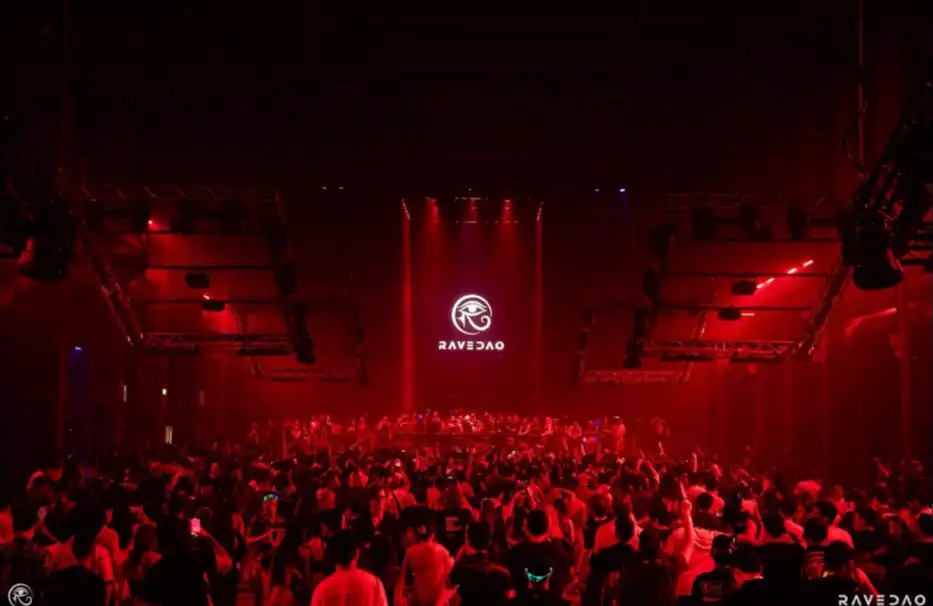Musk Officially Announces Resignation from DOGE, Reflecting on His Love-Hate Relationship with Trump
Editor's Note: This article was published in April 2025, at which time Musk and Bezos were arguing outside the White House, sparking a discussion about the American political scene. Just today, Musk posted on X stating, "As my time as a special government employee comes to an end, I want to thank President Trump for giving me this opportunity to cut wasteful spending. The mission of the Department of Government Efficiency (DOGE) will only strengthen over time as it becomes a way of life for the entire government." As Musk's political career comes to a close, let's look back at the political storms he once stirred up.
Recently, a heavyweight argument at the White House once again brought the U.S. government into the spotlight, with Department of Government Efficiency head Musk and U.S. Treasury Secretary Bezos exchanging insults due to ideological differences, almost escalating into a physical confrontation. In the end, Trump accepted Bezos's appointment proposal, leading many to question whether there was a rift in the relationship between Trump and Musk. Behind this conflict lies not only a power clash between Silicon Valley and Washington but also unveils the intricate power play from "close comrades" to "power balance" between Trump and Musk.
Looking back at the beginning of the year, the biggest political reform Trump initiated with Musk was the collaborative establishment of the "Department of Government Efficiency" (DOGE), under the guise of "streamlining the government," to drive radical reform. Its core objectives mainly focus on reducing government spending, digitizing the bureaucratic system, using algorithms to replace human decision-making, and the core team consists of 6 tech elites aged 19-25. Since Trump took office on January 20, DOGE has swiftly implemented a series of reforms, from closing the U.S. International Development Agency to significantly reducing the number of federal government employees, and even obtaining taxpayer privacy information to improve fiscal efficiency. With Trump's endorsement and support, Musk has weathered through challenges to lead a radical reform storm in the United States.
Related Reading: "Terminating Hundreds of Contracts in 18 Days, Musk and 6 Post-00s Youth Revolutionize America" "Cutting Billions More in Contracts, What Quirky Government Departments Has Musk's D.O.G.E Discovered?"
According to DOGE's official website data, as of April 20, 2025, DOGE has saved a total of approximately $160 billion, averaging about $993.79 saved per taxpayer, with savings covering various areas:
Contract Terminations: 8,454 contracts terminated, saving approximately $30 billion. For example, terminating the Risk Management Agency's lease in Topeka, Kansas, with an annual rent of $121,800 is expected to save approximately $964,000 over multiple years.
Grant Termination: 9699 grants terminated, saving approximately $33 billion. For example, the termination of grants to Gavi, the Vaccine Alliance by the U.S. Agency for International Development saved a total of $1.75 billion.
Lease Termination: 643 leases terminated, saving approximately $3 billion.

However, an NPR Analysis pointed out that some contract terminations did not result in actual savings. For instance, 794 contract cancellations were estimated to have no savings as the funds were already fully committed. Additionally, the calculation of savings for the Department of Grants and Engagements (DOGE) used the potential maximum value of the contracts rather than actual expenditure, leading to controversy.
Honeymoon Period: Mutual "Back-and-Forth" of Political Allies
As early as the 2024 U.S. presidential election, Musk and Trump began frequent interactions. At the time, Musk contributed $259 million, mobilized all Silicon Valley resources, and with his personal influence, became a key support for Trump's return to the White House. After Trump took office, as his "angel investor," Musk naturally gained unprecedented political status and power.
On February 7, Musk publicly expressed his support for Trump on social media. He stated that his love for Trump is "the greatest extent of love that a straight man can give to another man."

On March 4, while attending Trump's State of the Union address, Musk wore a tie borrowed from Trump.

With Musk's massive layoffs of federal employees, a nationwide wave of Tesla car destruction, owner intimidation, and dealership protests ensued. Tesla factories faced peaceful demonstrations and acts of vandalism, including charging stations catching fire. Cybertruck vandalism surged across the U.S., with some owners even graffitiing their own Tesla cars in protest against Musk.
Reports of Tesla car and dealership damage along with protest activities indicate that the opposition to Musk has reached a boiling point. Bellde analyst Ben Carlo stated on CNBC, "When people's cars are at risk of being scratched or burned, even those who support Musk or are indifferent to Musk may think twice about the issue of purchasing a Tesla."
Elon Musk has also repeatedly stated that running his own businesses has been "extremely difficult," with Tesla's stock experiencing its most severe drop in five years and his social media company, X, facing multiple outages.
However, such swift and resolute reforms are bound to harm the interests of a considerable number of people. From the first day Musk entered politics, opposition voices have been constant. Tesla's stock has plummeted since Musk took office, almost halving its market value, experiencing its most severe drop in five years. This has caused Musk's personal wealth, calculated from the beginning of the year, to evaporate by around $121 billion.

As Musk's most significant political background and ally, Trump, when Musk was under attack, inevitably had to stand by him and support him.
On the afternoon of March 11, local time in the United States, Trump held a 30-minute press conference on the White House driveway. The press conference looked more like a large-scale Tesla car show—accompanied by Musk, Trump answered questions about the U.S. stock market, Canadian tariffs, and the Russia-Ukraine war while test driving five different types and colors of Tesla cars.
"The one I like the most is that one," Trump pointed to a bright red Model S priced at around $80,000. In the end, Trump chose the Model S and said he would write an $80,000 check to buy the car in full.

Trump also criticized those Tesla boycotters, believing they are harming a great American company and claiming that if the boycotters continue to treat Tesla this way, he will root out these people and "curse" them to "go to hell." White House spokesman Harrison Fields also said, "The despicable violence being continuously carried out by radical leftists against Tesla is no different from domestic terrorism."
Under Trump's "endorsement," Tesla's stock price rose during Tuesday's intraday trading, ultimately closing up 3.79%.
To show loyalty, on March 24, at Trump's third cabinet meeting, Musk wore a red hat that read "Trump Is Always Right."

During this period, the two were still close comrades dedicated to advancing reform. Trump needed a "sharp tool" to expand his territory, while Musk needed a platform to realize his political ambitions. The two were highly aligned in their goals and interests.
First Cracks: Policy Discord and Power Play
Ever since Trump announced his high tariffs policy, a discord between Trump's political agenda and Musk's personal interests has emerged, causing a crack in their relationship. The high tariffs resulted in a sharp drop in the U.S. stock market in a short period, and Musk's assets have shrunk by over $100 billion since the beginning of the year. Coming from an entrepreneurial background, Musk views the issue from an economic efficiency rather than political perspective, supporting barrier reduction and free trade, and has publicly expressed his opposition to the tariffs policy multiple times.

On April 5, at the Italian League Assembly held in Florence, Musk, in a video call interview with Italian Deputy Prime Minister Matteo Salvini, stated: "In the end, I hope Europe and the U.S. can come to an agreement. In my opinion, ideally we want to see zero tariffs, effectively creating a free trade zone between Europe and North America." On April 7, Musk shared a video on Twitter where the late free-market economist Milton Friedman discussed the benefits of free trade. Musk did not add any text to the post, but this action was widely interpreted as criticism of Trump's tariff policy.

Musk's brother, Kimbal Musk, also criticized Trump's tariff policy on Twitter, stating, "Taxing consumption means less consumption, which means fewer jobs, which in turn leads to even less consumption and even fewer jobs." He believes the tax is a "structural, permanent tax on American consumers."

Especially targeting trade adviser Peter Navarro, Musk has made many criticisms and satirical comments. On April 8, he responded to a post quoting Navarro's interview where Navarro called Tesla more of an "assembler" than a "manufacturer" and criticized its parts coming from China, Japan, and Taiwan. Musk directly responded in anger, saying, "Navarro is a fool, what he says here is obviously BS," and then attached a community note proving the Tesla Model Y is the "most American-made car." Seemingly not satisfied with one rebuttal, Musk further referred to Navarro as "dumber than a sack of bricks" in another post.

Escalating Conflict: Bezos and Musk Engage in Intense War of Words
Their conflicting stances on tariff issues have gradually fermented in the intricate power struggle.
On April 23, local time, it was reported that on April 17, Musk and Treasury Secretary Bezos engaged in a heated clash at a meeting in the West Wing of the White House. Bezos lost control of his emotions and lashed out with profanity, to which Musk provocatively responded to "speak up," escalating to personal attacks. Bezos angrily accused Musk of exaggerating the Dogecoin budget cut issue, leading to no progress. Musk fired back directly, calling Bezos a "puppet of Soros" and mocking him for his past disastrous performance managing a hedge fund. The argument caught the attention of Trump and visiting Italian Prime Minister Meloni, and it took the intervention of aides to separate the two.

The direct cause of this conflict was the controversy over the appointment of the IRS commissioner. As the head of the U.S. Department of Efficiency, Musk proposed appointing Gary Sharply as the acting IRS commissioner without Bezos' consent. As the IRS is supposed to report to the Treasury Department, Bezos believed this action infringed on his authority. He lobbied Trump to rescind the appointment and instead support his deputy, Treasury Deputy Michael Fulkend, for the IRS commissioner role.
The outcome of this struggle seemed to be a victory for Bezos, as Trump eventually supported Bezos' proposal, revoking Musk's appointment of Sharply and appointing Fulkend as the acting IRS commissioner.
The ability of the two senior U.S. officials to angrily curse each other in front of the White House is actually rooted in their longstanding animosity. Early in Trump's tenure, Musk vigorously lobbied to nominate Howard Luttneck as Treasury Secretary, but Trump ultimately chose Bezos and appointed Luttneck to lead the Department of Commerce. Perhaps from the beginning, Trump had a strategy of balancing his underlings, getting closer to whichever side aligned more with his views, laying the groundwork for future conflicts.
The fundamental nature of their conflict lies in the power struggle and gamesmanship within the Trump administration. The reformists led by Musk attempt to reshape the landscape through new policies, while the traditionalists represented by Bezos resist practices that harm their own interests. Trump's handling of this event is also seen as a sign of Musk's diminished influence within the government.
It is worth noting that, on tariff policy, unlike Musk's clear opposition, Bezos has publicly supported tariff policies, believing that imposing new tariffs in the U.S. is necessary, and refuting the view that new tariffs would lead to an economic downturn in the U.S. Perhaps the consistency of policy leanings is also why Trump gradually leaned towards Bezos and distanced himself from Musk, as, for Trump, a businessman by trade, there are only eternal interests, not eternal friends.
Elon Musk's role is limited by the 130-day service period for special government employees, which is calculated from January 20, 2025, Trump's inauguration day, and is expected to expire at the end of May. At the end of February, there were still anonymous leaks within the White House, stating that Musk "will stay," but on March 31, Trump himself publicly acknowledged Musk's business priorities and did not show a determined attitude to retain him. Perhaps as Elon Musk's 130-day government employee term enters its countdown with the completion of the DOGE mission, Trump will gradually fade Musk out of the center of power and instead use new allies who are more in line with his own interests, looking back with a somewhat melancholy sigh reminiscent of the saying "a flying bird seeks the best bow."
The world's richest person, Musk, experienced a taste of "technological restructuring of the workplace" in the center of U.S. politics. He lit a fire for Trump's "new sheriff in town," touching the interests of countless people, and rapidly reforming this behemoth known as the U.S. government at an incredible pace. What it left behind was not only the controversial embryonic form of "algorithmic governance" but also exposed the deep-seated contradictions between capital and power entwined in U.S. politics. This radical experiment of "technology transforming politics" seems to be approaching its conclusion. When Musk truly departs, the red MAGA hat bearing the words "Trump is always right" may become the most dramatic footnote to this brief "political marriage."
Welcome to join the official BlockBeats community:
Telegram Subscription Group: https://t.me/theblockbeats
Telegram Discussion Group: https://t.me/BlockBeats_App
Official Twitter Account: https://twitter.com/BlockBeatsAsia


 Forum
Forum Finance
Finance
 Specials
Specials
 On-chain Eco
On-chain Eco
 Entry
Entry
 Podcasts
Podcasts
 Activities
Activities
 OPRR
OPRR








